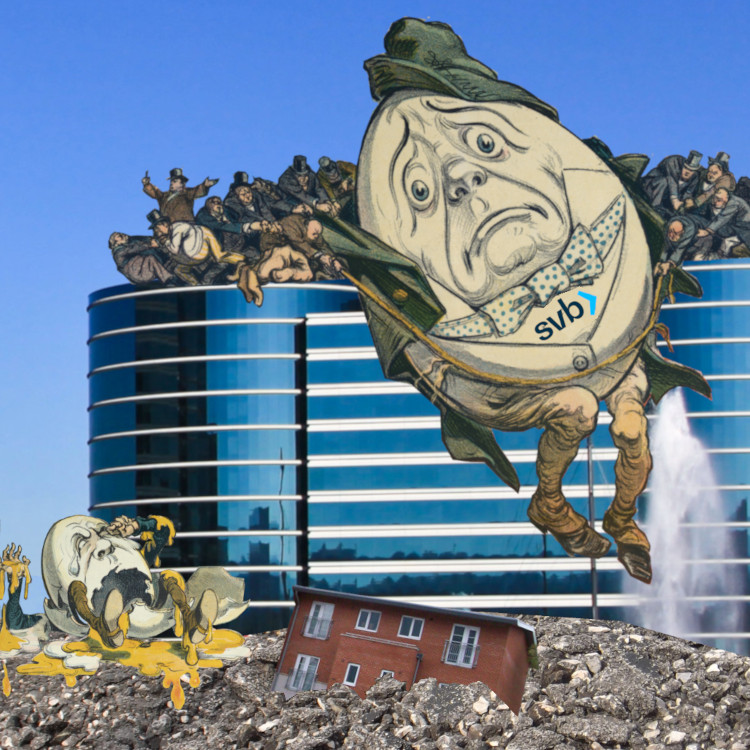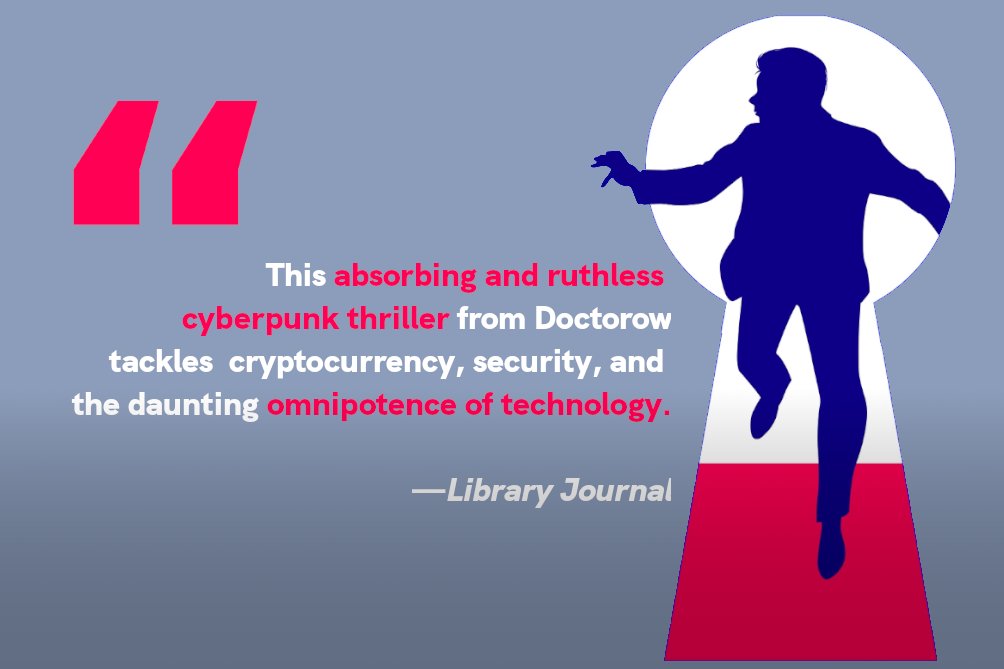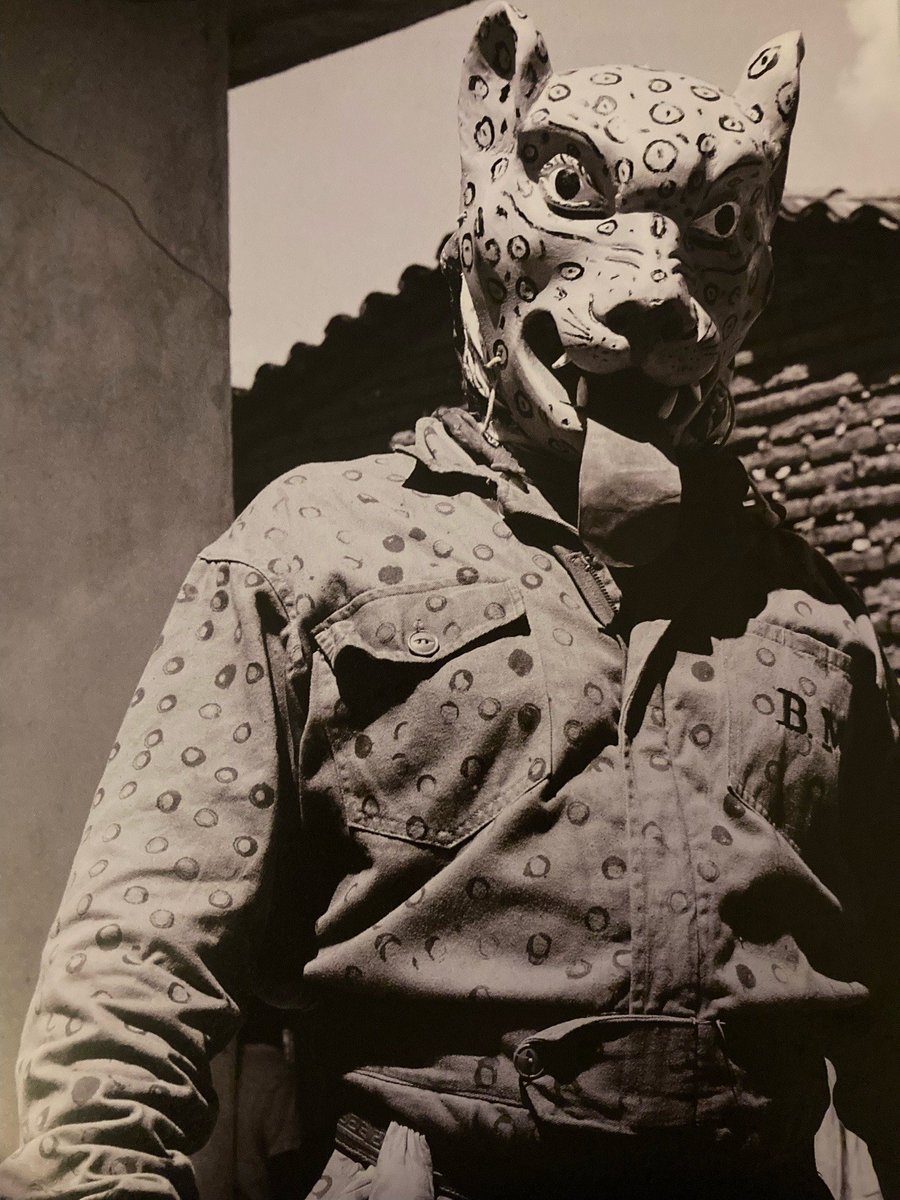If the word "antitrust" has a dusty, old-fashioned feel, that's only to be expected - after all, the word has its origins in the late 19th C, when the first billionaire was created.
1/
1/

If you'd like an essay-formatted version of this thread to read or share, here's a link to it on pluralistic.net, my surveillance-free, ad-free, tracker-free blog:
pluralistic.net/2023/04/14/aim…
2/
pluralistic.net/2023/04/14/aim…
2/
That billionaire was #JohnDRockefeller, who formed a "trust" with his oil industry competitors, through which they all agreed to stop competing with one another so they could concentrate on extracting more from their workers and their customers.
3/
3/
Trusts were an *incredibly* successful business structure. A bunch of competing companies would be sold to a new holding company ("the trust"), and the owners of those old standalone companies would get stock in this new trust.
4/
4/
The trust would operate as a single entity, hiking prices and lowering wages. If anyone tried fight the trust with a new, independent company, the trust could freeze them out, by selling goods below cost, or by doing exclusive deals with key suppliers and customers, or both.
5/
5/
Once a trust sewed up an industry, no one could compete. The trust barons were rulers for life.
The first successful trust was Rockefeller's Standard Oil, which amassed a 90% share of all US oil.
6/
The first successful trust was Rockefeller's Standard Oil, which amassed a 90% share of all US oil.
6/
Other "capitalists" got in on the game, forming the Cotton Seed Oil Trust (75% market share), Sugar Trust (85%). Then the Whiskey and Beef Trusts. America was a planned economy, run by unelected "industrialists" with lifetime appointments and choice of their successors.
7/
7/
A century after overthrowing the King, America had new kings: "kings over the production, transportation and sale of the necessities of life".
8/
8/
That's how Senator John Sherman described the situation in 1890, when he was campaigning for the passage of the #ShermanAct, the first "anti-trust" act. The Sherman Act wasn't the first time American lawmakers tried to protect competition:
marker.medium.com/we-should-not-…
9/
marker.medium.com/we-should-not-…
9/
But it was the first law passed after the failure of competition law led to the hijacking of the nation by people Sherman called the "autocrats of trade."
10/
10/
The Sherman Act - and its successors, like the #ClaytonAct, are landmark laws in that they explicitly seek to protect workers and customers from corporate power.
11/
11/
Antitrust is about making sure that no corporation gets so powerful that it's too big to fail, nor too big to jail - that a company can't get so big that it subverts the political process, capturing its own regulators:
doctorow.medium.com/small-governme…
12/
doctorow.medium.com/small-governme…
12/
If American workers are derided as "temporarily embarrassed millionaires" who won't join the fight against the rich because they assume they'll soon join their ranks, then the American rich are "temporarily embarrassed aristocrats."
13/
13/
They'd welcome hereditary rule, provided they got to found one of the noble families. The goal of the American elite has always been to create a vast and durable dynasty, wealth so vast and well-insulated that even the most Habsburg-jawed failson can't piss it away.
14/
14/
The American elite has *always* hated antitrust. In the 1980s, #RonaldReagan, abetted by #RobertBork and his co-conspirators at the #ChicagoSchoolOfEconomics gutted antitrust through something called the "#ConsumerWelfareStandard."
15/
15/
That ended anti-monopoly enforcement except in instances where price hikes could be directly and unarguably attributed to market power, which is, basically, never.
16/
16/
It's been 40 years since #Reagan took antitrust out behind the Lincoln Monument and shot it, and America is the aristocratic #kleptocracy Sherman railed against, where "great families" control the nation's wealth, politics and its #SCOTUS judges:
pluralistic.net/2023/04/06/cla…
17/
pluralistic.net/2023/04/06/cla…
17/
Anything that can't go on forever will eventually stop. Monopoly threatens the living standards, health, freedom and prosperity of nearly every person in America.
18/
18/
The undeniable enshittification of the country by its guillotine-ready finance ghouls, tech bros and pharma profiteers has led to a resurgence in antitrust, and a complete renewal of the @FTC and @JusticeATR:
eff.org/deeplinks/2021…
19/
eff.org/deeplinks/2021…
19/
Key to the new, vibrant FTC is @BedoyaFTC, who, with @RKSlaughterFTC and @linakhanFTC, is part of the FCC's Democratic majority. Bedoya's background is in tech, privacy and civil rights. He's a longtime opponent of predatory finance. He's a law prof and a sprightly writer.
20/
20/
Earlier this week, Bedoya gave a prepared speech for the Utah Project on Antitrust and Consumer Protection conference, entitled "Aiming at Dollars, Not Men." It's a *banger*:
ftc.gov/system/files/f…
21/
ftc.gov/system/files/f…
21/
Criticisms of the #NewAntitrust don't just come from America's oligarchs - the labor movement is skeptical of antitrust as well, and with good cause.
22/
22/
Antitrust law prohibits collusion among firms to raise prices, but many times since the Sherman Act, judges have willfully perverted antitrust to punish labor, treating workers demanding better working conditions like Rockefeller and his cronies conspiring to raise prices.
23/
23/
This is the subject of Bedoya's speech, whose transcript is painstakingly footnoted, and whose text makes it crystal clear that this is *not* what antitrust is for, and we should *not* tolerate its perversion in service to crushing worker power.
24/
24/
The title comes from a 1914 remark by Democratic Rep Thomas Konop, who said, of antitrust: "We are aiming at the gigantic trusts and combinations of capital and not at associations of men for the betterment of their condition. We are aiming at the dollars and not at men."
25/
25/
In 1892, two years after the Sherman Act's passage, it was used to crush the New Orleans General Strike, an interracial uprising against labor exploitation from longshoremen to printers to carpenters to hearse drivers.
26/
26/
In 1892, two years after the Sherman Act's passage, it was used to crush the New Orleans General Strike, an interracial uprising against labor exploitation from longshoremen to printers to carpenters to hearse drivers.
27/
27/
Bosses went to a federal judge asking for an injunction against the strike. Though the judge admitted that the Sherman Act was designed to fight "the evils of massed capital," he still issued the injunction.
28/
28/
The Sherman Act was used to clobber the Pullman Porters union, which organized Black workers who served on railroad Pullman cars. They struck in 1894, after a 25% paycut, and they complained that they could no longer feed their families, so George Pullman fired them all.
29/
29/
The workers struck, led by #EugeneDebs. Pullman argued that the strike violated the Sherman Act. The Supreme Court voted 9:0 for Pullman, ordered the strike called off, and put Debs in prison.
30/
30/
In 1902, mercury-sickened hatters in Danbury, CT demanded better working conditions - after just a few years on the job, hatters would be disabled for life with mercury poisoning, with such bad tremors they couldn't even feed themselves.
31/
31/
250 hatters at the DE Loewe company tried to unionize. Loewe sued them under the Sherman Act, and went to the Supreme Court, who awarded Loewe $6.8m in today's money, which allowed Loewe to seize his former workers' homes.
32/
32/
This is what sent Congress back to the drawing board to pass the Clayton Act. Though the Sherman Act was clear that it was about *trust*busting, the courts kept interpreting it as a charter for *union*-busting.
33/
33/
The Clayton Act explicitly permits workers to form unions, call for boycotts, and to organize sympathy strikes.
They made all this abundantly clear: writing in language so plain that judges *had* to understand the legislative intent.
34/
They made all this abundantly clear: writing in language so plain that judges *had* to understand the legislative intent.
34/
And yet...judges still managed to misread the Clayton Act, blocking *2,100 strikes* in the '20s. Passing the Clayton Act did not save a single strike that would have been killed by the bad (and bad faith) Sherman Act precedents that led to the Clayton Act in the first place.
35/
35/
he extent to which greedy bosses used the Clayton Act to attack their workers is genuinely ghastly. Bedoya describes one coal strike, against the Red Jacket Coal Company of Mingo, WV. The mine's profits had grown by 600%, but workers' wages weren't keeping up with inflation.
36/
36/
The miners sought a raise of $0.10 on the $0.66 they got paid for ever carload of coal they mined. The company didn't even pay the workers with real money - just "#CompanyScrip": coupons that could only be spent at the #CompanyStore.
37/
37/
Red Jacket gave its workers at $0.09/car raise - and raised prices at the company store by $0.25/item.
The workers struck, Red Jacket sued.
38/
The workers struck, Red Jacket sued.
38/
The Fourth Circuit refused to apply the Clayton Act, following a precedent from a case called #DuplexPrinting that held that the Clayton Act only applied to people who stood "in the proximate relation of employer and employee."
39/
39/
Congress was *pissed*. They passed the Norris-LaGuardia Act of 1932, with LaGuardia spitting about judges who "willfully disobeyed the law...emasculating it, taking out the meaning intended by Congress, making the law absolutely destructive of Congress's intent."
40/
40/
Norris-LaGuardia creates an antitrust exemption for labor that applies "regardless of whether the disputants stand in the proximate relation of employer and employee." So, basically: "CONGRESS TO JUDGES, GET BENT."
41/
41/
And yet, judges still found ways to use antitrust as a cudgel against workers. In #ColumbiaRiverPackers, a court held fishermen weren't protected by the labor exemption, because they sold "commodities" (fish) not their labor. Presumably, the fish just leapt into the boats.
42/
42/
The willingness of enforcers to misread antitrust continued down through the ages. In 1999, the FTC destroyed the hopes of the some of the country's most abused workers: "independent" port truckers, who worked 80 hours/week and still couldn't pay the bills.
43/
43/
Truckers were only paid to move trailers around the ports, but were required to do hours of unpaid work - loading containers, hauling for repair, all for free. They tried to organize a union - and the FTC subpoenaed the organizers for an investigation of price-fixing.
44/
44/
But the problem wasn't with the laws. It was with judges who set precedents that - as LaGuardia said, "willfully disobeyed the law...emasculating it, taking out the meaning intended by Congress, making the law absolutely destructive of Congress's intent."
45/
45/
Congress passed laws to strengthen workers and judges - temporarily embarrassed aristocrats - simply acted as if the law was intended to smash workers.
46/
46/
But by 2016, judges figured it out. That's when jockeys at the Camarero racetrack in Canóvana, Puerto Rico struck, demanding pay parity with their mainland peers - Puerto Rican jockeys got $20 to risk their lives riding, a fifth of what riders on the mainland received.
47/
47/
Predictably, the horse owners and racetrack sued. The jockeys lost in lower court, and the court ordered the jockeys to pay the owners and the track a million dollars. They even sued the jockeys' spouses, so that they could go after their paychecks to get that million bucks.
48/
48/
The case went to the First Circuit appeals court and Judge Sandra Lynch said: you know what, it doesn't matter if the jockeys are employers or contractors. It doesn't matter if they sell a commodity or their labor.
49/
49/
The jockeys have the right to strike, period. That's what the Clayton Act says. She overturned the lower court and threw out the fines.
As Bedoya says, antitrust is "law written to rein in the oil trust, the sugar trust, the beef trust...the gigantic trusts and combinations of capital...dollars and not at men."
51/
51/
Congress made that plain, "not once, not twice, but three times, each time in a louder and clearer
voice."
52/
voice."
52/
Bedoya, part of the FCC's Democratic majority, finishes: "Congress has made it clear that worker organizing and collective bargaining are not violations of the antitrust laws. When I vote, when I consider investigations and policy matters, that history will guide me."
eof/
eof/
• • •
Missing some Tweet in this thread? You can try to
force a refresh

 Read on Twitter
Read on Twitter


















